Share
Transforming Travel and Tourism: The Game-Changing Impact of AI Technology
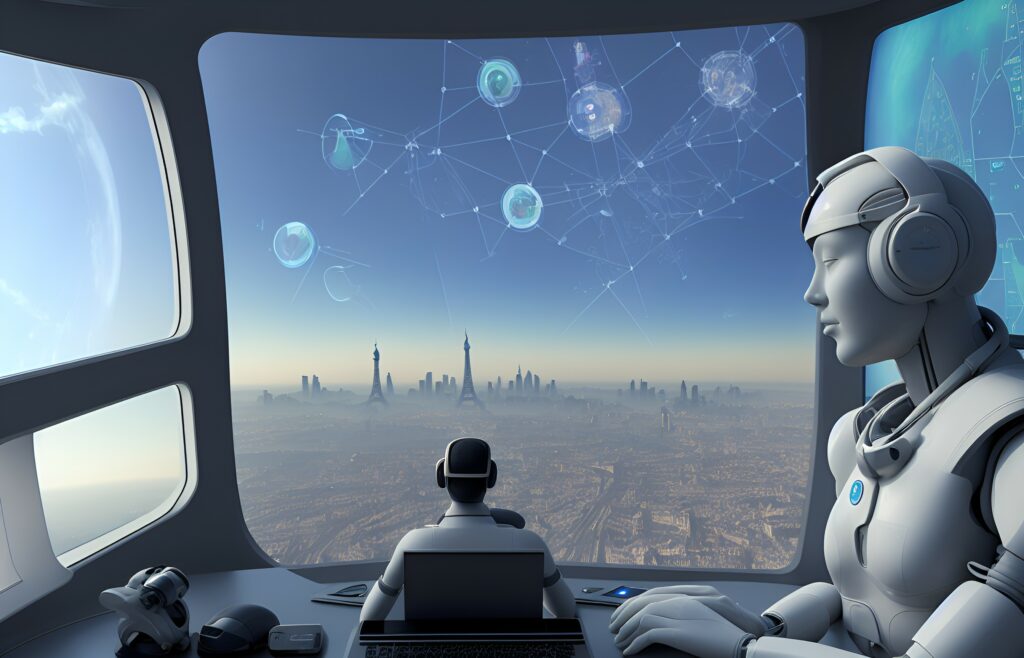
Welcome to a journey through the world of AI and its impact on the travel and tourism industry. Today, we embark on an exciting adventure that will take us through the marvels and wonders of modern technology, and the profound effects it has on the travel and tourism industry.
Have you ever found yourself lost in a foreign city, desperately searching for directions to your hotel? Or maybe you’ve spent hours trying to book the perfect vacation, only to end up with a subpar experience. Well, fear not! The age of AI is upon us and in the travel and tourism industry AI promises to alleviate many problems both from a traveller’s perspective as well as from the perspectives of businesses and destinations.
Picture this – a virtual assistant that can answer all your travel queries, from the best restaurants in town to the nearest public restrooms. Or a personalized recommendation engine that can curate your travel itinerary based on your preferences and past behaviour. Or even an automated system that can streamline the entire booking process, making it faster and more efficient. In the world we live in today, if you can imagine it, AI can make it possible.
AI is a Powerful Tool in the Travel and Tourism Industry
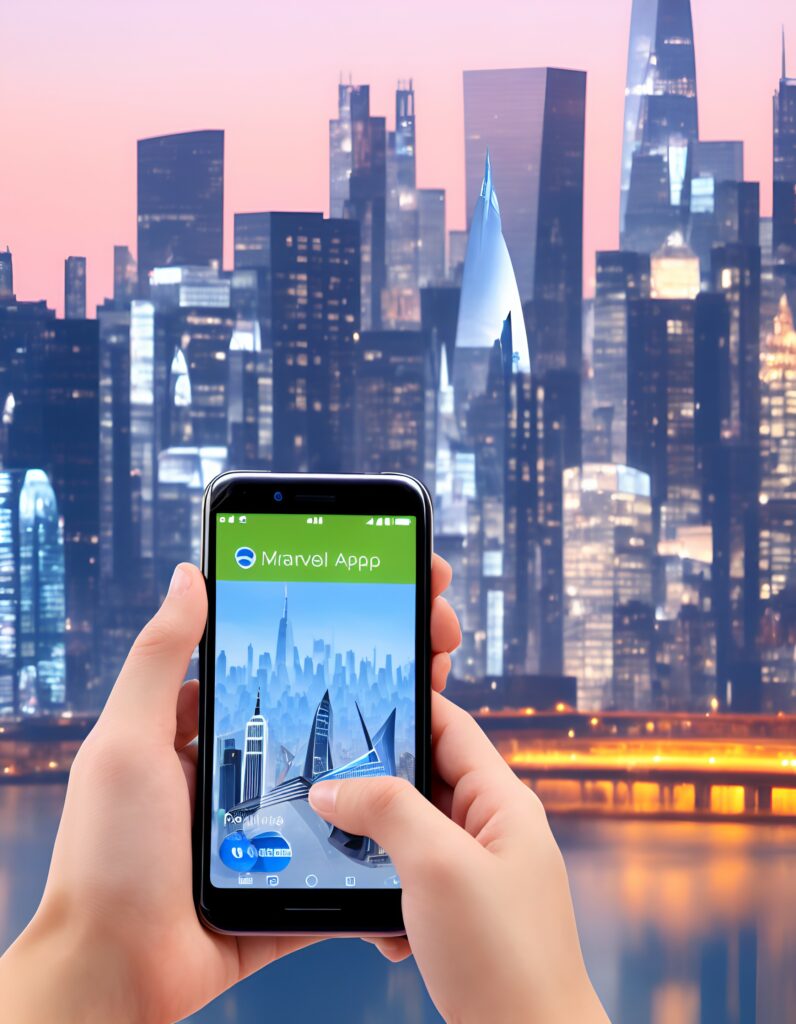
Artificial intelligence is no longer a buzzword reserved for tech-savvy individuals. It’s a powerful tool that’s transforming every aspect of our lives, including how we travel. From the moment you start planning your trip, to the moment you return home, AI is there, working behind the scenes to make your experience seamless and personalized. AI is revolutionising the way we search, plan, book, buy, and consume travel services.
Back in 1988, long before the Internet had any real impact on travel and tourism, Leve Global’s Managing Director, Dr. Auliana Poon predicted that travel and technology will go hand-in-hand.
Dr. Poon affirmed that the rapid diffusion of a system of information technologies (in this case AI) will have four key impacts on the travel and tourism industry:
1) It will improve the efficiency of production;
2) It will improve the quality of services;
3) It will lead to the generation of new services; and
4) It will engineer the spread of a whole new industry ‘best practice’.
* According to Tourism and Competitive Strategies, Dr. Auliana Poon, 1988
AI’s Impact on the Efficiency of Production in the Travel and Tourism Industry
Here’s Dr. Poon’s predictions for how AI will affect the travel and tourism industry in terms of efficiency of production.
One of the biggest advantages of AI is the ability to automate routine tasks. Many AI-powered software and technologies such as ChatGPT will free up time and resources. With its natural language processing abilities, ChatGPT can handle customer inquiries and support requests quickly and efficiently. AI will allow travel industry professionals to focus on more complex and high-value activities, such as orchestrating and delivering unforgettable experiences to guests, rather than being bogged down by mundane tasks.
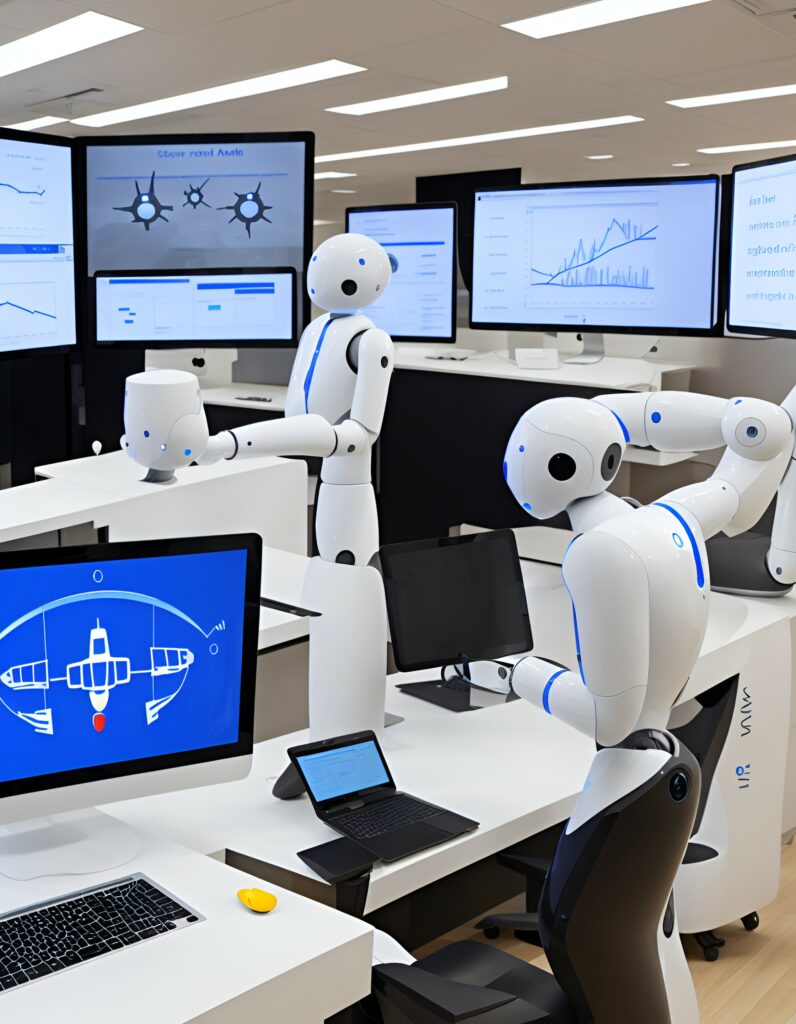
But AI isn’t just limited to customer service. It can also assist with booking and reservations, providing personalized recommendations and making the process smoother and more efficient. This not only benefits travellers but also travel agents and booking platforms, who can handle a higher volume of bookings with the help of AI technologies like ChatGPT.
AI-powered analytics and data management tools are also transforming the travel industry. By analyzing vast amounts of data, these tools can identify trends and patterns, helping travel industry professionals make informed decisions about pricing, marketing, and more. This leads to better allocation of resources and higher profitability.
And let’s not forget about AI-powered chatbots, which are becoming more and more popular in the travel industry. These chatbots can handle everything from itinerary changes to hotel bookings, freeing up human staff to focus on more complex tasks.
So the next time you travel, take a moment to appreciate the behind-the-scenes work that AI is doing to make your experience better than ever before!
AI Will Improve the Quality of Services
AI-powered tools are transforming the way travel industry professionals provide services to travellers. One of the key benefits of AI is its ability to personalize the travel experience, making it more enjoyable and memorable for each individual.
For example, AI-powered recommendation engines can analyse a traveller’s preferences and past travel experiences to suggest activities, restaurants, and accommodations that are perfectly suited to their tastes. This not only enhances the overall travel experience but also helps to differentiate travel brands and increase customer loyalty.
AI is also improving the quality of customer service in the travel industry. Chatbots and virtual assistants powered by AI can quickly and efficiently handle customer inquiries and support requests, providing 24/7 assistance to travellers which leads to a better customer experience.
An example of how AI is used in the travel and tourism industry to improve customer service is the Expedia Virtual Agent. The Expedia Virtual Agent is an AI-powered chatbot that assists customers with their travel needs 24/7. The chatbot can answer a wide range of customer queries, from flight bookings to hotel reservations and even provide personalized recommendations for activities and attractions based on the customer’s preferences.
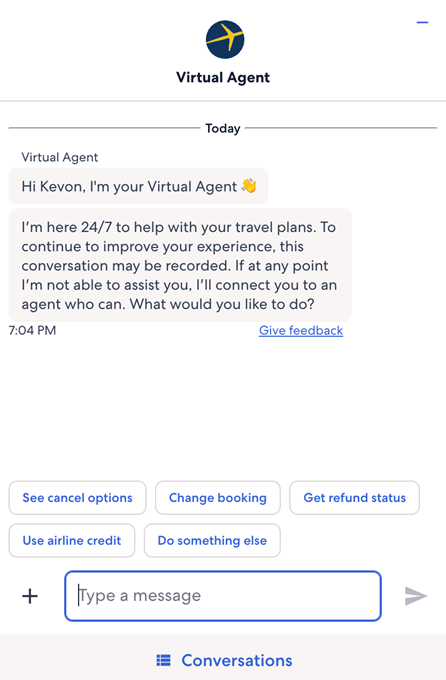
By using machine learning and natural language processing (NLP), the chatbot can understand and respond to customer queries in a natural and intuitive way. The more customers interact with the chatbot, the more it learns about their preferences and behaviour. This in turn allows it to provide more personalized recommendations and assistance over time.
AI Will Improve the Quality of Services
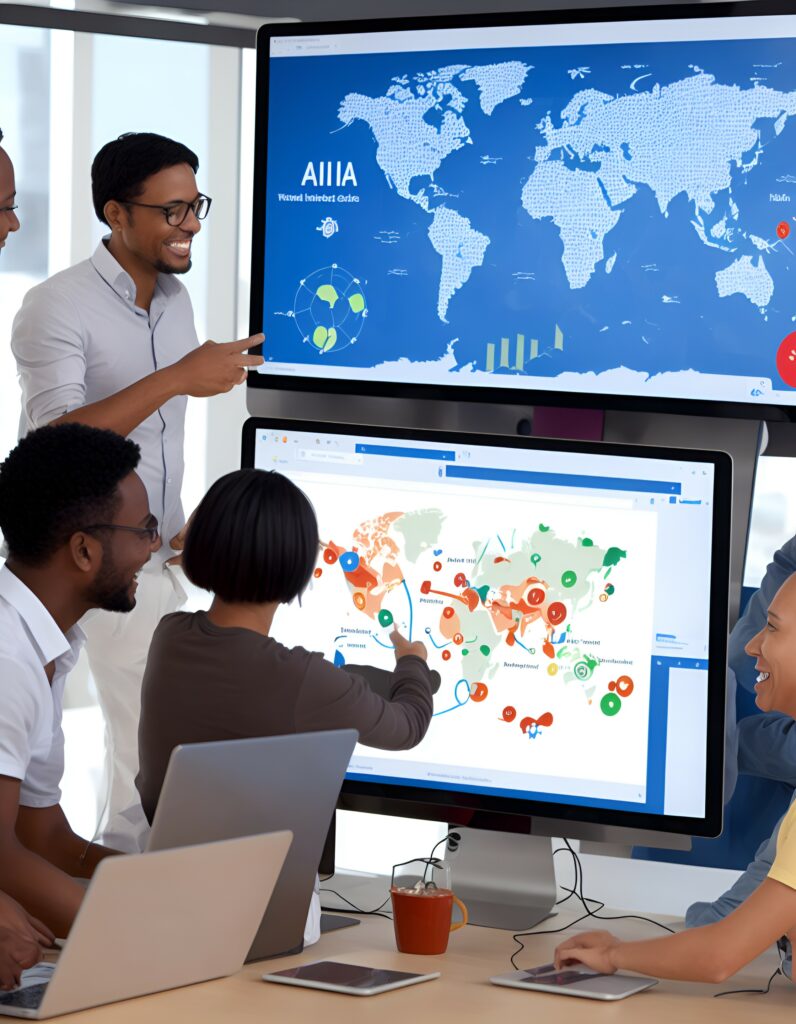
Leve Global predicts that AI will lead to the generation of new services. AI is revolutionizing the travel industry by providing new tools and technologies that can enhance the travel experience and create new products that were previously not possible.
For example, AI-powered tools can analyse vast amounts of data to identify trends in travel behaviour and preferences, allowing travel industry professionals to create new products that meet the needs and desires of travellers. This data analysis can also help travel companies predict demand for certain products and services, allowing them to offer the right products to the right market at the right time.
Another exciting application of AI in product development is in the creation of immersive experiences. AI-powered virtual and augmented reality technologies are allowing travel companies to create new and unique experiences that transport travellers to different places and times, providing a fully immersive and engaging travel experience.
Robots are even beginning to infiltrate customer service in the travel industry, eliminating the need for human agents. Gone are the days of queuing for information or trying to find your gate in a busy terminal. This is because some popular airports and hotels are now using robots to help you in these situations. One example is the robot at London’s Heathrow Airport that guides passengers around the terminals.
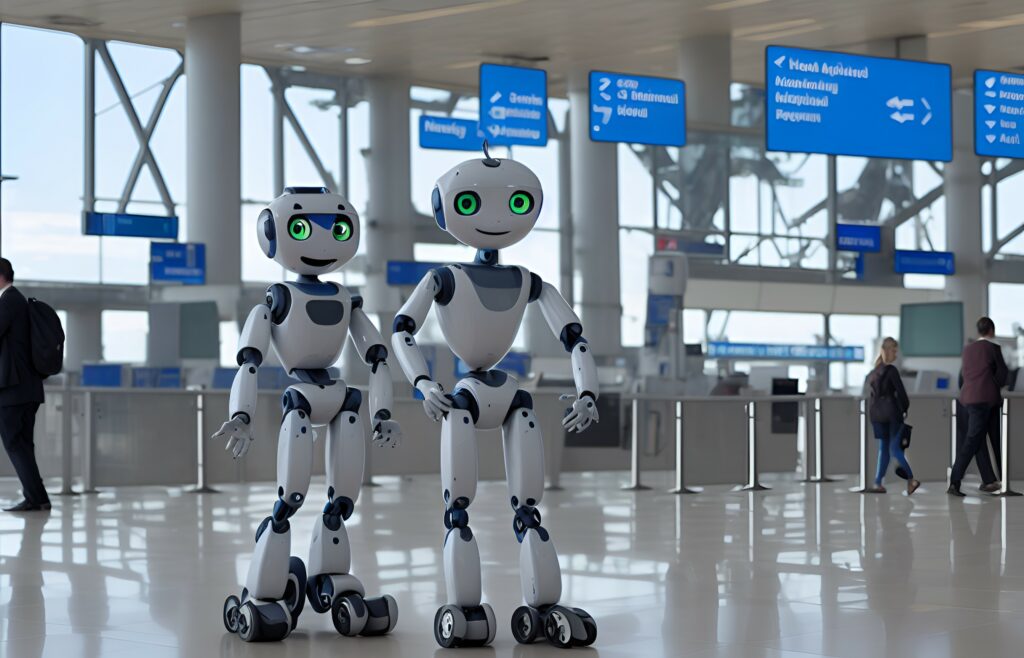
In her book, “Tourism, Technology and Competitive Strategies”, Dr. Poon pointed out that the travel and tourism industry is radically and rapidly transforming and that change will be largely driven by the consumer and facilitated by technology. And we see that happening right before our eyes. The way we conduct business and consume travel is once again changing drastically. And that change is largely facilitated by the rapid diffusion and adoption of new technology, particularly AI. The way we book, look, search, plan, consume, and buy travel will never be the same.
Let’s start with travel planning. In the past, travellers would have to scour multiple websites to find the best deals on flights, hotels, and rental cars. But now, AI-powered booking platforms like Booking.com and Expedia can take care of everything for you. With advanced algorithms and machine learning, these platforms can analyze your preferences and search history to recommend the perfect travel package for you.
Destination AI-Powered Services
But what about once you’ve arrived at your destination? That’s where AI-powered chatbots come in. Imagine being able to message your hotel’s front desk at any time of the day or night, and getting a response within seconds. With chatbots, this is now possible. They can handle everything from booking tours to ordering room service, all without the need for human intervention.
And when it comes to exploring your destination, AI has you covered there too. Recommendation engines can analyze your preferences and previous travel experiences to suggest activities and attractions that you’re sure to love. And with the help of AI-powered translation software, you can even communicate with locals in their own language, making your experience even more immersive.
AI Will Transform and Inform Travel Sustainability
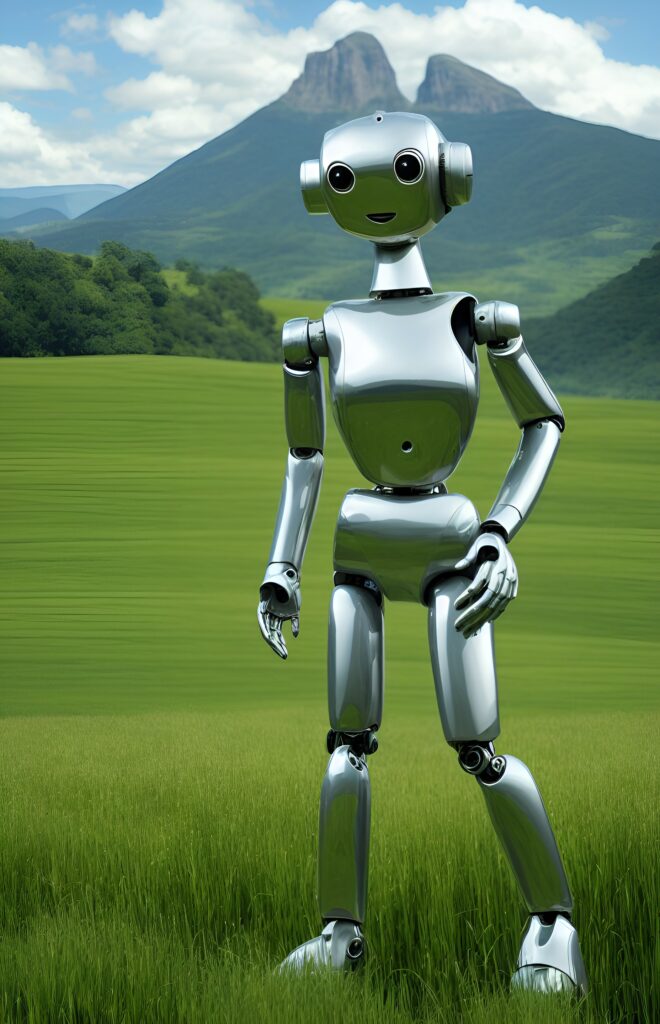
The benefits of AI in travel go beyond just convenience and personalization. One of the key benefits of AI in the travel industry is its potential to help make travel more sustainable. By analyzing data on travel patterns and environmental impact, AI can help travel companies to make more informed decisions about their operations and reduce their carbon footprint.
For example, AI-powered tools can be used to analyze data on energy consumption and emissions from transportation, accommodation, and other travel-related activities. This data can be used to identify areas where emissions can be reduced and efficiency can be improved, such as optimizing flight routes, reducing food waste in hotels, and promoting sustainable tourism practices in local communities.
AI can also be used to promote more sustainable travel behaviour among travellers. For example, travel companies can use AI-powered chatbots to educate travellers about sustainable travel practices, such as using eco-friendly transportation, choosing sustainable accommodations, and supporting local communities and businesses.
Will AI Take Your Job?

Of course, there are concerns about the role of AI in travel and tourism. Some worry that it could lead to a loss of jobs or the homogenization of travel experiences. In other words, back to the mass tourism days where a customer was just a number. But with careful planning and responsible implementation, these concerns can be addressed. Combining AI for the high-tech and targeted aspect of the travel experience with the high-human-touch will be the perfect marriage to deliver exceptional experiences for travellers.
While AI is here to stay, how we integrate it with real humans will be the key to reaching the next level of customer service and satisfaction. AI can create and even curate the experiences. But it is the talented human being that will be needed to deliver those exceptional and unforgettable experiences.
Enjoy the Ride – AI is Here to Stay
All in all, AI is transforming the travel and tourism industry in exciting ways. It’s making travel more convenient, personalized, and sustainable. And as AI continues to advance, we can only imagine what new possibilities and innovations will emerge. Consumers are definitely going to be using AI technology and as a result they will continue to drive change in the travel and tourism industry. Technology will facilitate that change. It’s up to travel and tourism suppliers to ‘get with the program’ and use AI to understand, predict, target, and engage travellers, and exceed their expectations. So, let’s buckle up and enjoy the ride! It’s going to be rough. The less you resist and the faster you adapt and adopt AI the better the experience will be for you as a travel and tourism service provider.
Click here to download 10 Innovative Tourism Product Ideas that you might not have thought about. See which ones you can implement. All using AI and digital technologies of course. #4 and #7 were my top two picks.
We would love to hear from you. Engage with us. Leave a comment below.
About the Author:
Kevon Wilson
Senior Analyst
Leve Global

Kevon Wilson, is a premier researcher and strategist. He has more than 16 years’ experience in research and digital marketing.
He is co-author of many of Leve Global’s research publications such as Big Data – Delivering the Big Picture to Drive Competitiveness, Everything You Need to Know About Internet Marketing, and The Top Ten Emerging Markets.
